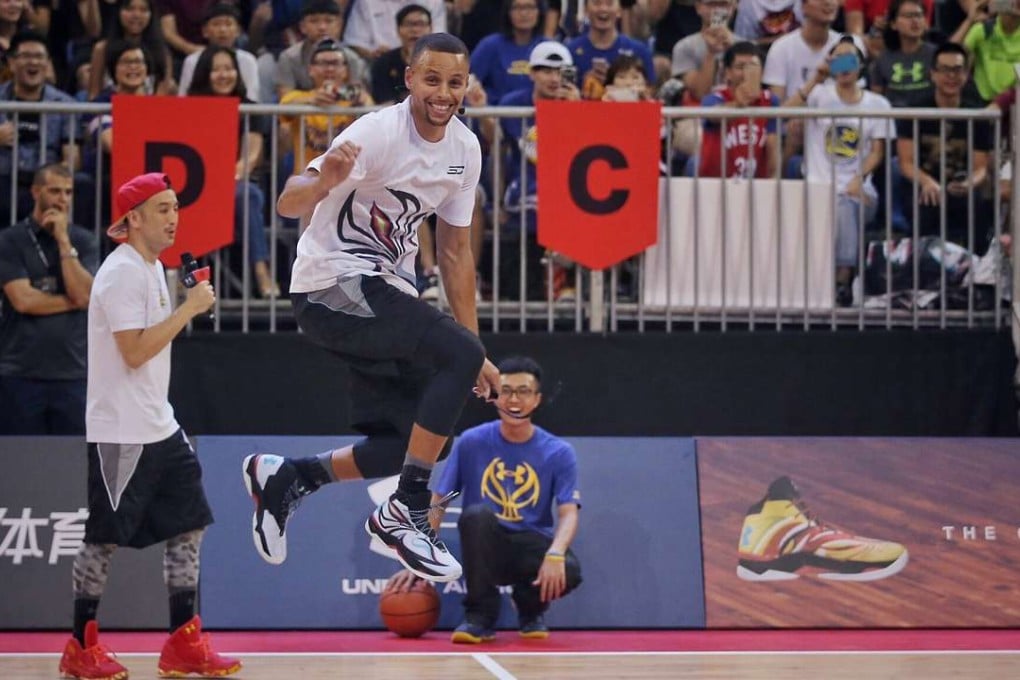Under Armour ups its pace in China
Sportswear company’s founder and CEO teams up with NBA star Stephen Curry for a whistle-stop, five-day nationwide push for more fans

Under Armour, the Baltimore-based US sports brand that has just completed a second promotional tour of China with one of basketball’s biggest stars, says it is poised to become a billion-dollar-plus business in the country, with training and running gear at the forefront of its bid to catch rivals such as Nike.
The sportswear and accessory maker plans to open more than 200 new stores across the country over the next two years as part of its growth strategy, founder and CEO Kevin Plank told South China Morning Post in an exclusive interview during a visit to Hong Kong.
“In China, we have put in everything we have to make it great,” he said.
The American football player-turned-entrepreneur, 44, was speaking in the presidential suite of The Peninsula hotel overlooking the city’s spectacular Victoria Harbour, as he accompanied Stephen Curry, twice winner of the NBA’s coveted Most Valuable Player award, on a whirlwind five-day China tour, sponsored by Under Armour.

Plank spotted the potential of the Chinese obsession with Curry, poaching him from Nike as the face of Under Armour’s sportswear in 2013 and last year extending the contract to 2024. The company has launched more than 60 versions of Curry’s signature shoes since February 2015.
On the back of his phenomenal success, snatching an NBA championship and two consecutive MVP awards, sales of the company’s basketball footwear have skyrocketed, both in the US and in China.